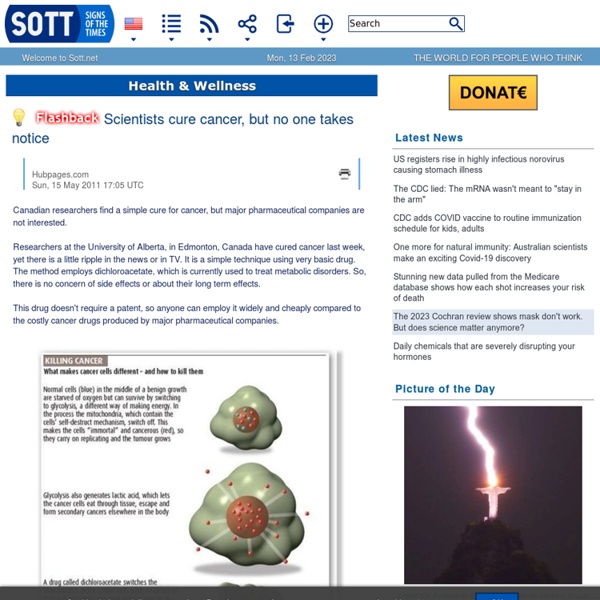Scientists cure cancer, but no one takes notice

Earth may be headed into a mini Ice Age within a decade
High performance access to file storage What may be the science story of the century is breaking this evening, as heavyweight US solar physicists announce that the Sun appears to be headed into a lengthy spell of low activity, which could mean that the Earth – far from facing a global warming problem – is actually headed into a mini Ice Age. Ice skating on the Thames by 2025? The announcement made on 14 June (18:00 UK time) comes from scientists at the US National Solar Observatory (NSO) and US Air Force Research Laboratory. The Sun normally follows an 11-year cycle of activity. This could have major implications for the Earth's climate. An immediate question is whether this slowdown presages a second Maunder Minimum, a 70-year period with virtually no sunspots [which occurred] during 1645-1715. As NASA notes: Early records of sunspots indicate that the Sun went through a period of inactivity in the late 17th century. "This is highly unusual and unexpected," says Dr Frank Hill of the NSO.
RDF-Gravity
Sunil Goyal, Rupert Westenthaler {sgoyal, rwestenthaler}@salzburgresearch.at Salzburg Research, Austria RDF Gravity is a tool for visualising RDF/OWL Graphs/ ontologies. Its main features are: Graph VisualizationGlobal and Local Filters (enabling specific views on a graph) Full text SearchGenerating views from RDQL QueriesVisualising multiple RDF files RDF Gravity is implemented by using the JUNG Graph API and Jena semantic web toolkit. Figure 1: Screenshot of RDF-Gravity, showing a part of Wine Ontology 1 Graph Visualisation RDF Gravity defines a visualization package on top of the JUNG Graph API. Configurable renderers for edges and nodes of a graph, including different node shapes and edge decorations etc.A Renderer Factory allowing the configuration of the above node and edge renderers based on the type of an edge or node. For graph layout, it uses the layout algorithms directly supported by the Jung API. 2 Global & Local Filters 3 Full Text Search 4 Visualising Multiple RDF Files
Science Daily: News & Articles in Science, Health, Environment & Technology
Related:
Related:



